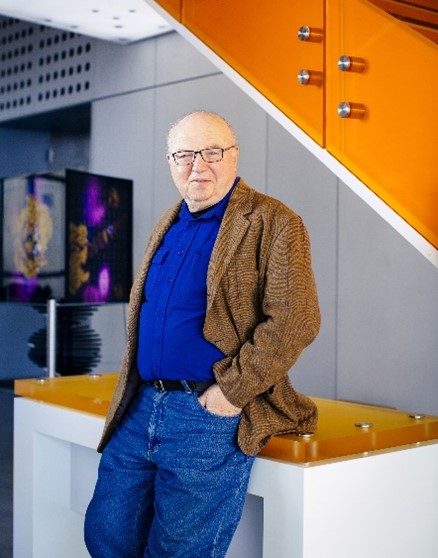
David Zilberman, Ph.D.
Distinguished professor and holder of the Robinson Chair, Department of Agricultural and Resource Economics, University of California Berkeley
Country: United States of America
Title: “The impacts of a circular economy- and the policies to advance it.”
Abstract: Climate change food security and safety challenge the human food system, technology, and institutions. New management principles are introduced to address these challenges- including circularity, the bioeconomy, agroecology, and precision farming. I aim to address the linkage between these approaches and argue that they are part of the sustainable development of agriculture. Sustainable development means pursuing improved welfare at present without harming future generations, and thus implies conservation, improved input use efficiency, and recycling, among others. These approaches are complementary, and their introduction, implementation, and growth require continuing investment in education research, extension, technology transfer institutions from the public and private sector, and enabling incentives and policies. These policies include pricing various externalities, particularly greenhouse gas emissions, science-based regulations allowing utilizing new biological tools, smart credit policies and investment in digital infrastructure and in human capital.
Biography: David Zilberman holds the Robinson Chair in the Agricultural and Resource Economics Department, University of California at Berkeley. He is the recipient of the 2019 Wolf Prize in Agriculture and was elected a member of the U.S. National Academy of Science 2019. David served as the 2018-(Zilberman continued) 19 President of the Agricultural & Applied Economics Association (AAEA). He’s a Fellow of the AAEA, Association of Environmental and Resource Economists, European Association of Environmental and Resource Economists, and Honorary Life Member of the International Association of Agricultural Economists. David has published in both professional and popular outlets. He has more than 350 refereed articles in journals ranging from Science to ARE-Update and has edited 20 books. In addition, he has served as a Consultant to the U.S. Environmental Protection Agency, the World Bank, and FAO.
David’s research analyzes innovation supply chain and policy economics, emphasizing the interactions between agriculture, energy, and the environment. He has researched the economics and political economy of agricultural biotechnology and the potential of the bioeconomy. In addition, he has been working on water policy programs and the economic impacts of the covid pandemic.
Email: zilber11@berkeley.edu
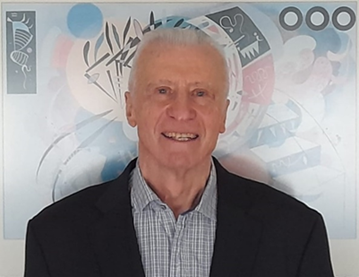
Roberto Mario Bocchetto, Ph.D.
Associate Professional of INTA (National Institute of Agricultural Technology). Former National Director – Former Project Director: “Bioeconomy of Northern Argentina”.
País: Argentina
Title: “The Bioeconomy as a Vector for Sustainable Development: Lessons from Institutional Life.”
Abstract: This presentation assumes an expanded vision regarding the insertion of circular bioeconomy into a sustainable national and regional development model that is an instrument of productive transformation and structural change that promotes economic, social, environmental and territorial cohesion. In Argentina, a political divergence was raised on the development strategy based on the role assumed by the agrarian and industrial sectors. The result was a pendular economy and an unfinished industrialization, which resulted in a trade deficit of manufacturing of industrial origin underlying the substitutive industrialization of imports and the low exportable value of manufacturing of agricultural origin, accompanied by the loss of energy supply. The circular bioeconomy in conjunction with science, technology and innovation (STI) opens the opportunity to overcome this divergence in the search for sustainable development, exploring biodiversity and using sustainably the whole spectrum of renewable biological production at the regional and territorial level of the country. The main conditioning for balanced regional development is due to the structural heterogeneity, (Bocchetto continued) different socio-productive dynamics and the degree of socio-economic performance that occurs between the central grassland region (Pampeana) and the other regions of the interior of the country (Norte Grande, Cuyo and Patagonia).
Structural change requires the correction of imbalances in the interregional development of the country starting from the modification of the asymmetric pattern of regional accumulation and territorial equity. A basic hypothesis emerges: if the circular economy is to be functional to this challenge, it will be necessary for its progress to be consolidated in an integrated strategy with territorial development at the country level and as far as possible in the supra-regional sphere of the Southern Cone. In this exhibition, the stages, searches and conflicts of integration between circular bioeconomy and territorial development will be analyzed through the experience of the National Institute of Agricultural Technology (INTA) that covers the country, regions and territories, with identity functions focused on research (R&D) and the extension/transfer of technology. The main conclusion is that emerging challenges require definitions and agreements that are consolidated as State policies and a new institutionality adapted to solve them in changing contexts.
Biography: Roberto Bocchetto, is an agronomic engineer at the National University of Mar del Plata, Master of Science in Agrarian Economics from the Graduate School for Agricultural Sciences of the Argentine Republic; Master of Arts in Economics and PhD in Agricultural Economics from Michigan State University, USA. He currently serves in INTA as Associate Professional with the role of Advisor in organization and management of institutional innovation. Positions held: Director of the MINCyT/BIRF Project: “Bioeconomy of Northern Argentina” – INTA-INTI-UNNE-UNSa-UNSE Consortium (2018-2021); Coordinator of the Agroindustrial Public Management Residency Program (postgraduate) and the study team on: “Development, industrialization and convergence field-industry” – Secretary of Agriculture, Livestock and Fisheries (2015); Director of the MINCyT/BIRF Project: “Studies of the Argentine Agro-Industrial Sector” – Consortium INTA-UNL-Grupo REDES-Fundación Banco Credicoop (2011-2013); Regional Coordinator of the Regional Platform for Institutional Innovations for the Development of PROCISUR (2009-2014); INTA National Director (2003-2007); Executive Secretary of PROCISUR (1995-2003); Director of PROCISUR/IDB Project: “Organization and management of agri-food and agro-industrial technological integration in the expanded Mercosur – Global Project” (1999-2001).
He worked as an International Expert on FAO, UNDP and IICA in the Integrated Rural Development Programs of Northeast and Northwest Brazil (1985-1992).
Email: bocchetto.roberto@inta.gob.ar
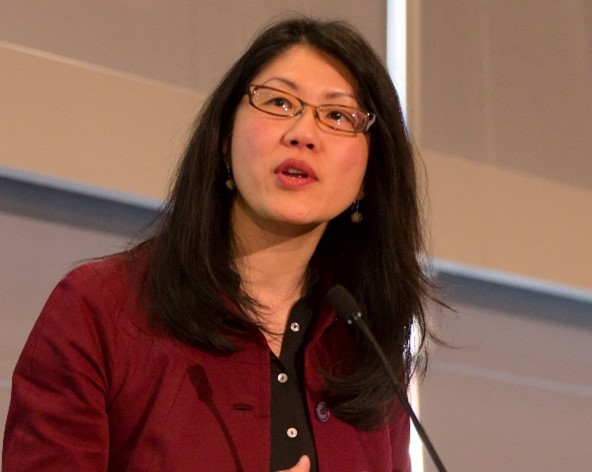
Karen C. Seto, Ph.D.
Frederick C. Hixon Professor of Geography and Urbanization Science, Faculty Director, Hixon Center for Urban Ecology, Yale School of the Environment, Yale University
Country: United States of America
Title: “Global Urbanization and the Imperative for a Circular Bioeconomy.”
Abstract: The pace and magnitude of urbanization are unprecedented. Every day, an area equal to about 20,000 soccer fields become converted to urban uses. Every five days, the global urban population increases by about one million. Currently, urban areas contribute to about 67-72% of global emissions. With urban land areas expected to triple in size between 2015 and 2050, massive infrastructure build-up will result in carbon lock-in and the global share of future urban GHG emissions will increase through 2050. In this talk, I will discuss trends in urbanization and the challenges they present for global sustainability. I will present key findings from the 2022 IPCC report and other new results that document the effects of urbanization on land, biodiversity, food systems, and regional and global climate.
Biography: Karen Seto is the Frederick C. Hixon Professor of Geography and Urbanization Science at the Yale School of the Environment. She is an urban and land change scientist whose central research focus is how urbanization will affect the planet. A geographer by training, she integrates remote sensing, field interviews, and modeling methods to study urbanization and land change, forecast urban growth, and examine the environmental consequences of urban expansion. She is the recipient of a NASA New Investigator Program Award, a NSF Career Award, a National Geographic Research Grant, and the Outstanding Contributions to Remote Sensing Research Award from the American Association of Geographers. She was named an Aldo (Seto continued) Leopold Leadership Fellow in 2009. She is an elected member of the U.S. National Academy of Sciences, the Connecticut Academy of Science and Engineering, and the American Association for the Advancement of Science. She earned a PhD in Geography from Boston University.
Email: karen.seto@yale.edu
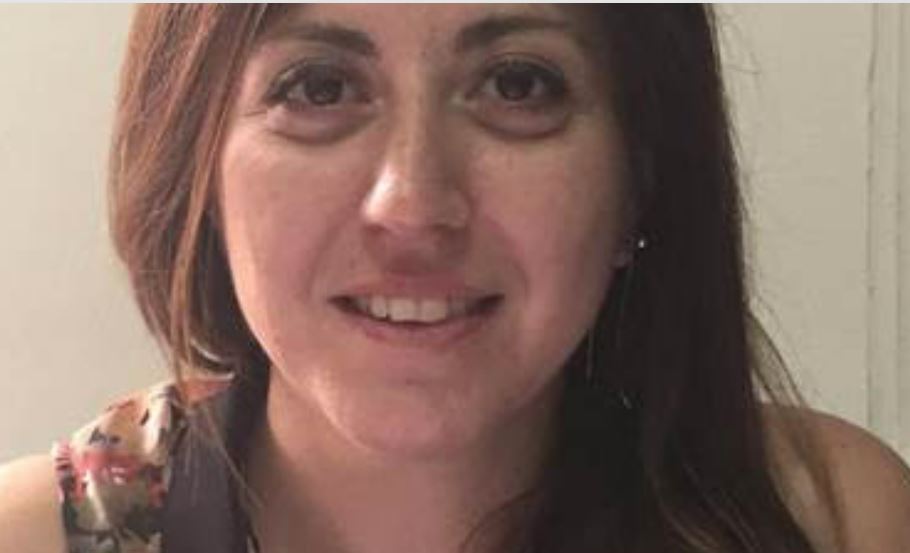
Marisol Fuhrs, Ph.D.
Biomaterials, Secretary of Agricultural Livestock and Fisheries
Country: Argentina
Title: “Bio-Innovation and Bioeconomy in Argentina”
Abstract: Bioinnovation is a concept that we have developed understanding it from a point of view of local adequacy. Through a new look at the term “innovation” (Oslo Manual, 2018), considering the different uses of novelty beyond commercial success and; In turn, incorporating the prefix bio. Bioinnovation contemplates developments in biotechnology, biomaterials, bioenergy and bioinputs as products different from traditional innovation, due to their own characteristics such as: the comparative advantages of the region, the added value of local crops and strengthening regional development.
In Argentina, there are a large number of entities that are developing biotechnological products, which need technical and financial support so that they can be used effectively. These demands that were absorbed and organized from the National Directorate of Bioeconomy of the Undersecretary of Food, Bioeconomy and Regional Development of the Ministry of Agriculture, Livestock and Fisheries that guided this new concept to the assembly of the Argentine Biodevelopment Program and the creation of a specific space of bioinnovation that accompanies the ventures of view of the National Directorate of Bioeconomy.
Biography: Dr. Marisol Fhur has a bachelors degree in industrial Designer of the Faculty of Architecture, Design and Urbanism and a Master of Policies and Management of Science and Technology from the University of Buenos Aires. She is a professor in the Industrial Design Department where she Chair the Division of Biomaterials: Innovation for Regional Development at the Faculty of Architecture and Urbanism. She also has a joint position at Di Tella University. She currently directs two research projects at FADU UBA on biomaterials and bioproducts, one of them: Industrial applications in biomaterials: Registration of synthesis, characterization and determination of the percentage of biobased carbon. She is currently responsible for the Biomaterials area in the National Directorate of Bioeconomy of the Ministry of Agriculture, Livestock and Fisheries in Argentina and technical manager of the National Advisory Commission on Biomaterials (COBIOMAT). Previously she coordinated interdisciplinary projects of triple impact and academic responsible for the FÁBRICA space of the Ministry of Science, Technology and Productive Innovation of the Nation.
Email: mfuhr@magyp.gob.ar

Laila Toum Terrones, Ph.D.
Assistant researcher in the National Scientific and Technical Research Council (CONICET). Ministry of Science and Technology, Argentina. Soybean breeding. Drought tolerance phenotyping.
Country: Argentina
Title: “The first Innovation Center for Sustainable Agriculture in Argentina: the challenge of leading the technological transformation of the local agro-industrial productive system.”
Abstract: Calculation models based on the growing global population and current agricultural production suggest that crop yields must be doubled to provide enough food in 2050. Agriculture is an element of economic development and an axis of social articulation. However, this prominence does not come without costs. Agriculture and the use of farmland is responsible for more than 20% of greenhouse gas emissions and the consumption of 70% of water globally. In Argentina, even when this activity is central and relevant, we have almost 37% of poverty, which demands a strong transformation of the agricultural practices based on social and technological changes, establishing new sustainable strategies to keep Argentina competitiveness and to reverse poverty rates of part of our population. With the frame, The Ministry of Science, Technology and Innovation of Argentina firmly promoted the creation of the first Innovation Center for Sustainable Agriculture in Argentina with the expectation to become agriculture more sustainable using the enormous scientific and technological knowledge in this area in our country.
Biography: Laila Toum Terrones is an Assistant Researcher in the National Scientific and Technical Research Council (CONICET) and currently plays a role in the Ministry of Science and Technology, Argentina. She earned her Bachelor and PhD degrees in Biological Science in the University of Buenos Aires. She conducted her graduate studies in the Laboratory of Molecular Phytopathology, at the University of Buenos Aires. PhD studies focused on plant-microbe interaction, studying suppression mechanisms of immune response by Xanthomonas campestris campestris (Xcc) in (Terrones continued) A.thaliana plants. As a postdoctoral research fellow in the Biotecnology Institute in Tucumán, Argentina, she studied the drought tolerance in soybean plants through transcriptomic and genomic approaches. She has published 11 peer reviewed papers in this field. Since 2020, she is working in the Ministry of Science, Tecnology and Innovation with the aim of consolidate science and technology political policies to contribute to Argentina development.
Email: ltoum@mincyt.gob.ar
Moderators:

Fernando Vilella, Ph.D.
Bioeconomy Director, School of Agriculture of the University of Buenos Aires
Biography: Fernando Vilella Fernando Vilella is an agronomist, graduated from the University of Buenos Aires (UBA). He is Director of the Agribusiness and Food Program, and Professor in charge of the Chair of Agribusiness, both of the School of Agriculture of the University of Buenos Aires (FAUBA). He is a member of the Boards of Directors of MAIZAR (Argentine Consortium of Maize and Sorghum Association), ETHICAGRO, Argentine Association of Biofuels and Hydrogen and the Pro-Antarctic Foundation. He chairs the “Fundación Alimentos Argentinos”. He has been Dean of the School of Agriculture of the University of Buenos Aires (FAUBA) from 1998 to 2006; Undersecretary of Agrarian Affairs of the Province of Buenos Aires from 2007 to 2008; creator of a new bachelor’s degree in Environmental Sciences, Agrifood Management and Organic Plant Production; Member of the Board of Directors of IAMA (International Food and Agribusiness Management Association Board of Directors) from 2007 to 2010; he lectures courses of the Masters in Agribusiness, Plant Production, Public Health and Agrometeorology and at the Master’s Degree in Plant Improvement at the University of Rosario. He directed 44 research projects, consultancy projects and scientific and technological cooperation agreements.
Email:
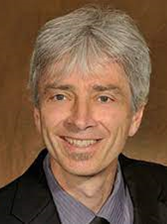
Frank Löeffler, Ph.D.
UT/ORNL Governor’s Chair Professor, Center for Environmental Biotechnology at the University of Tennessee, Knoxville
Biography: Frank Löeffler is the Governor’s Chair Professor in the Department of Microbiology and Department of Civil & Environmental Engineering at University of Tennessee. He has a B.S. in Agricultural Sciences and Biology and an M.S. in Microbiology from the University of Hohenheim in Germany, a Ph.D. in Technical Biochemistry and Microbiology from the Technical University Hamburg/University of Hohenheim, and completed a postdoc in microbial ecology at Michigan State University. He is the Principal Investigator for the Biogeochemical Controls over Corrinoid Bioavailability to Organohalide-Respiring Chloroflexi NIEHS R01 grant. His lab focuses on discovering microorganisms and processes to clean the environment, counter damage done to ecosystems by human activity, and improve environmental health. For more information please refer to Dr. Loeffler’s Lab Website.
Email: frank.loeffler@utk.edu